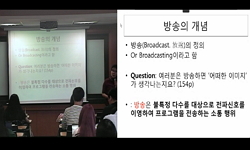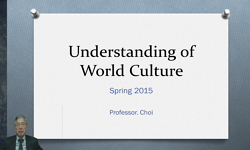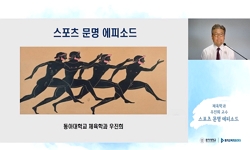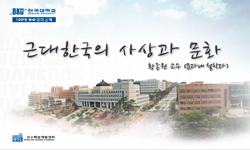This article is an examination of the local intellectuals who accumulated experiences of the modern culture and formed a perspective upon such new things, through the personal journals and diaries they left during the time when Korea was moving toward...
http://chineseinput.net/에서 pinyin(병음)방식으로 중국어를 변환할 수 있습니다.
변환된 중국어를 복사하여 사용하시면 됩니다.
- 中文 을 입력하시려면 zhongwen을 입력하시고 space를누르시면됩니다.
- 北京 을 입력하시려면 beijing을 입력하시고 space를 누르시면 됩니다.

한말·일제 초 `지방지식인`의 근대적 제도 및 문물에 대한 경험과 인식 ―생활일기류(生活日記類)의 분석을 중심으로― = The Experience and Perception that the `Local Intellectuals` Had of The Modern Culture and Civilization during the Ending Days of the Daehan Empire and the Early Days of the Japanese Occupation: Examination of Personal Journals and Diaries(生活日記類)
한글로보기https://www.riss.kr/link?id=A103127839
- 저자
- 발행기관
- 학술지명
- 권호사항
-
발행연도
2007
-
작성언어
Korean
-
주제어
지방지식인 ; 식민지자본주의 ; 근대문물 ; 기차여행 ; 사진촬영 ; 활동사진 ; 서양식 근대적 의료체계 ; local intellectuals ; colony capitalism ; modern culture ; trips ontrain ; photographing ; motion picture ; Western modern medicine.
-
등재정보
KCI등재
-
자료형태
학술저널
- 발행기관 URL
-
수록면
39-79(41쪽)
- 제공처
-
0
상세조회 -
0
다운로드
부가정보
다국어 초록 (Multilingual Abstract)
This article is an examination of the local intellectuals who accumulated experiences of the modern culture and formed a perspective upon such new things, through the personal journals and diaries they left during the time when Korea was moving toward an era of modernity. The local intellectuals` view of the modern capitalist institutions and policies were based upon their own personal interests. They did not show any active resistance or such attitude or even thinking to the new policies or the intervention from external forces. But on the other hand, they also demonstrated that the Koreans had internal potentials for development by well utilizing the colonial ruling policies of the imperial Japanese authorities. They also realized that the expansion of capitalist economy in Korea was not ensuring the colony population of wealth and happiness. But their view of the world followed the flow of the capital, and it started to gaze at Japan and the world, beyond the local areas and even the Hanyang capital of Joseon. What would the modern civilization have been like to the local intellectuals who newly faced it? They did not reject it at the first hand, or feared it based upon vague anxiety or Shaman beliefs just like the ordinary public. They continued to have a firsthand taste of modern culture and civilization, based upon rational thinking, reasoning, and economic power. They traveled to Seoul on train to watch motion pictures, took portrait photographs of their own, and received medical care at Western-style hospitals. But their experiences of modern culture was also part of their efforts to maintain their status inside the society. To them, it was a frustrating reality that the engine behind modernization was being driven by external forces(including the Japanese authorities), but the local intellectuals had always been the ultimate beneficiaries of the social structure and did not have the experience of resisting something. Therefore modern institutions and culture were things that they thought they should become familiar to, no matter who was providing them with it, in order to keep their status inside the society.
동일학술지(권/호) 다른 논문
-
일제의 농민조직화 정책과 농가 지도(1932~1945)
- 역사문제연구소
- 김민철 ( Kim Min Chul )
- 2007
- KCI등재
-
- 역사문제연구소
- 윤효정 ( Yoon Hyo Jung )
- 2007
- KCI등재
-
- 역사문제연구소
- 장신 ( Jang Shin )
- 2007
- KCI등재
-
임시정부 초대 외무총장 박용만 암살사건 ―공개처형인가, 암살인가?―
- 역사문제연구소
- 배경식 ( Bae Kyeong Sik )
- 2007
- KCI등재




 KISS
KISS






